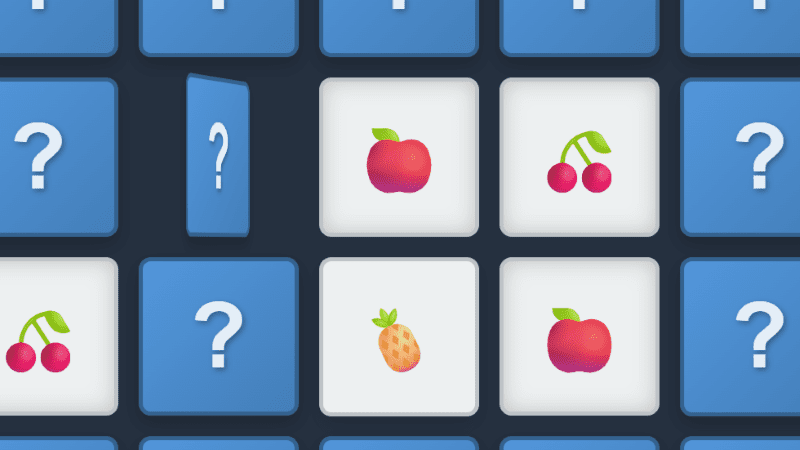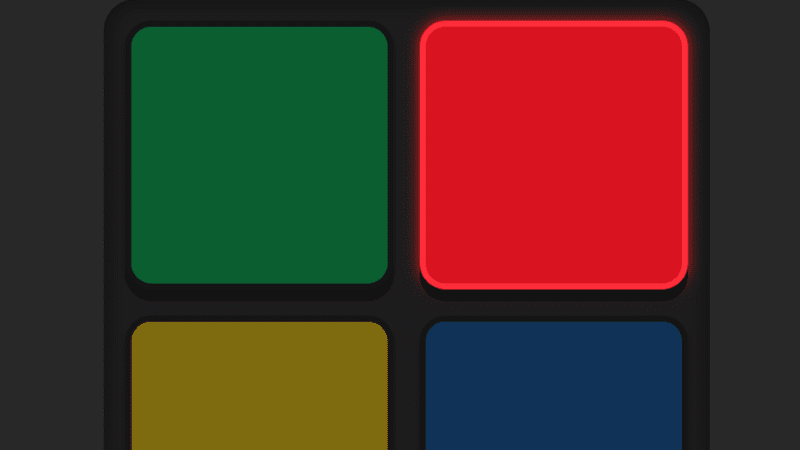Number Flow
Remember and repeat number sequences.
How to Play Number Flow
Welcome to Number Flow! This engaging memory sequence game challenges your ability to remember and reproduce increasingly complex numerical patterns. Test your short-term memory, concentration, and pattern recognition skills as sequences grow longer with each successful round.
Basic Rules
- The Goal: Repeat back number sequences that grow longer with each round you complete successfully.
- Starting the Game: Click the "Start" button to begin your first sequence challenge.
- Watching Sequences: The game displays number sequences by highlighting digits on the numpad and playing corresponding audio tones.
- Your Turn: After the sequence finishes, click the numbers on the numpad in the exact same order you observed.
- Progression: Successfully completing a sequence adds one more digit to the next round's challenge.
- Game Over: Making any mistake in the sequence order ends the current game.
- Scoring: Your score equals the number of rounds you complete - try to beat your personal best!
Tips for Beginners
- Focus Completely: Eliminate distractions and give the sequence your full attention. Even momentary lapses can cause you to miss crucial digits.
- Use Audio Cues: Each number produces a unique tone. Learning to recognize these audio patterns can supplement your visual memory.
- Watch the Rhythm: Pay attention to the timing and rhythm of the sequence playback - this can help with memorization and recall.
- Take Your Time: There's no time pressure when inputting your response. Think carefully before clicking each number.
- Start Small: Don't get discouraged by early mistakes. Even professional memory athletes started with simple sequences.
- Practice Regularly: Like any skill, memory improves with consistent practice. Play daily to see gradual improvement.
Advanced Strategies
- Chunking Technique: Break longer sequences into smaller groups of 3-4 digits. Your brain can process "147" and "258" more easily than "147258".
- Pattern Recognition: Look for mathematical patterns like ascending numbers (1-2-3), descending sequences (9-8-7), or alternating patterns.
- Verbal Rehearsal: Mentally repeat the sequence as it plays. Some players find whispering the numbers helps reinforce memory.
- Visual-Spatial Mapping: Create a mental map of the numpad layout and visualize drawing paths between the highlighted numbers.
- Memory Palace Technique: Advanced players can associate each digit with a familiar location in a mental journey or story.
- Rhythmic Encoding: Use the natural rhythm of sequence playback to create memorable patterns and beats.
- Strategic Restart: If you feel unfocused or tired, restart the game rather than continuing with diminished concentration.
Controls & Accessibility
- Mouse/Trackpad: Click the numpad buttons to input your sequence responses.
- Touch Devices: Tap the number buttons on smartphones and tablets - fully optimized for mobile play.
- Audio Feedback: Each number produces a distinct tone to aid memorization through multiple sensory channels.
- Visual Indicators: Clear highlighting shows which numbers are part of the current sequence.
- Progress Tracking: Round counter and score display help you monitor your improvement over time.
- Restart Function: Begin a new challenge anytime with the restart button.
Benefits of Playing Number Flow
Number Flow provides substantial cognitive benefits that extend far beyond gaming:
- Working Memory Enhancement: Regularly practicing sequence recall directly strengthens your working memory capacity.
- Concentration Improvement: The focused attention required builds sustained concentration skills applicable to daily tasks.
- Auditory Processing: Using audio cues alongside visual information enhances multi-sensory memory integration.
- Sequential Learning: Practice with ordered information improves your ability to follow complex instructions and procedures.
- Attention Control: Learn to maintain focus despite increasing cognitive demands and potential distractions.
- Pattern Recognition: Identifying sequences and mathematical patterns strengthens analytical thinking skills.
- Stress Tolerance: Managing pressure as sequences get longer builds resilience in challenging situations.
- Cognitive Flexibility: Adapting to increasingly complex patterns enhances mental adaptability and problem-solving.
The Science of Memory Training
Number Flow is based on established principles from cognitive psychology and memory research. The game specifically targets working memory - the cognitive system responsible for temporarily holding and manipulating information during complex tasks.
Research has shown that working memory training can improve performance not just in similar tasks, but can transfer to other cognitive abilities including attention control, problem-solving, and even fluid intelligence. The progressive difficulty in Number Flow follows optimal training principles by gradually increasing challenge as performance improves.
The dual-coding approach used in Number Flow - combining visual and auditory information - leverages what psychologists call the "modality effect." Information processed through multiple sensory channels is often better remembered than information from a single source.
Memory Techniques and Mental Athletics
Number Flow shares principles with competitive memory sports, where athletes memorize incredible amounts of information in short timeframes. Professional memorizers use techniques like the "Method of Loci" (memory palaces), chunking, and rhythmic encoding - many of which can be adapted for Number Flow.
The game serves as excellent training for developing these advanced memory techniques in a structured, progressive environment. Regular players often find that skills developed in Number Flow transfer to improved performance in academic, professional, and daily life situations requiring memory and attention.
Frequently Asked Questions
What's considered a good score for beginners?
Beginners typically achieve scores of 5-8 rounds. With practice, most players can reach 10-15 rounds. Scores above 20 rounds indicate excellent memory skills and significant practice.
Should I focus on visual or audio cues?
Use both! The most effective approach combines visual observation of the highlighted numbers with attention to the unique audio tones. This dual-sensory encoding strengthens memory formation.
How long should I practice each session?
Short, frequent sessions (10-15 minutes) are typically more effective than long practice periods. This prevents mental fatigue and maintains high concentration levels.
Is there a maximum sequence length?
Theoretically, sequences can continue indefinitely, but practical human memory limits mean most players reach their ceiling between 15-25 rounds. World-class memory athletes might achieve higher scores.
Can playing this game improve my memory in daily life?
Yes! Regular practice can improve working memory capacity, concentration, and attention control - skills that transfer to remembering phone numbers, following directions, and other everyday memory tasks.


